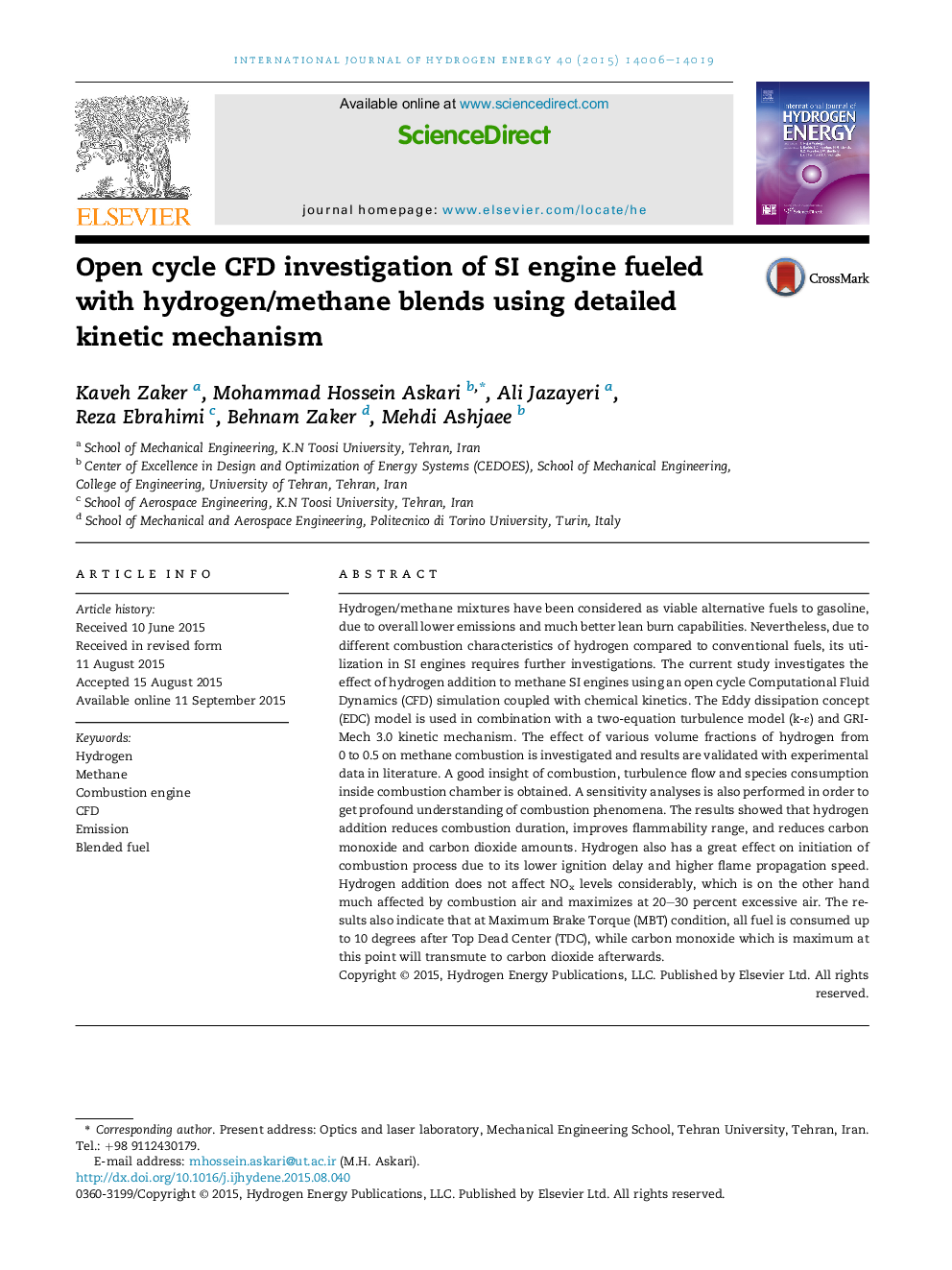| Article ID | Journal | Published Year | Pages | File Type |
|---|---|---|---|---|
| 1270458 | International Journal of Hydrogen Energy | 2015 | 14 Pages |
•Combustion duration reduces and flammability range extends by H2 addition.•Hydrogen has great effect on initiation of combustion process.•At maximum brake torque condition, all fuel is consumed up to 10° after TDC.•Maximum in-cylinder temperature increases slightly with increasing hydrogen.
Hydrogen/methane mixtures have been considered as viable alternative fuels to gasoline, due to overall lower emissions and much better lean burn capabilities. Nevertheless, due to different combustion characteristics of hydrogen compared to conventional fuels, its utilization in SI engines requires further investigations. The current study investigates the effect of hydrogen addition to methane SI engines using an open cycle Computational Fluid Dynamics (CFD) simulation coupled with chemical kinetics. The Eddy dissipation concept (EDC) model is used in combination with a two-equation turbulence model (k-ε) and GRI-Mech 3.0 kinetic mechanism. The effect of various volume fractions of hydrogen from 0 to 0.5 on methane combustion is investigated and results are validated with experimental data in literature. A good insight of combustion, turbulence flow and species consumption inside combustion chamber is obtained. A sensitivity analyses is also performed in order to get profound understanding of combustion phenomena. The results showed that hydrogen addition reduces combustion duration, improves flammability range, and reduces carbon monoxide and carbon dioxide amounts. Hydrogen also has a great effect on initiation of combustion process due to its lower ignition delay and higher flame propagation speed. Hydrogen addition does not affect NOx levels considerably, which is on the other hand much affected by combustion air and maximizes at 20–30 percent excessive air. The results also indicate that at Maximum Brake Torque (MBT) condition, all fuel is consumed up to 10 degrees after Top Dead Center (TDC), while carbon monoxide which is maximum at this point will transmute to carbon dioxide afterwards.
